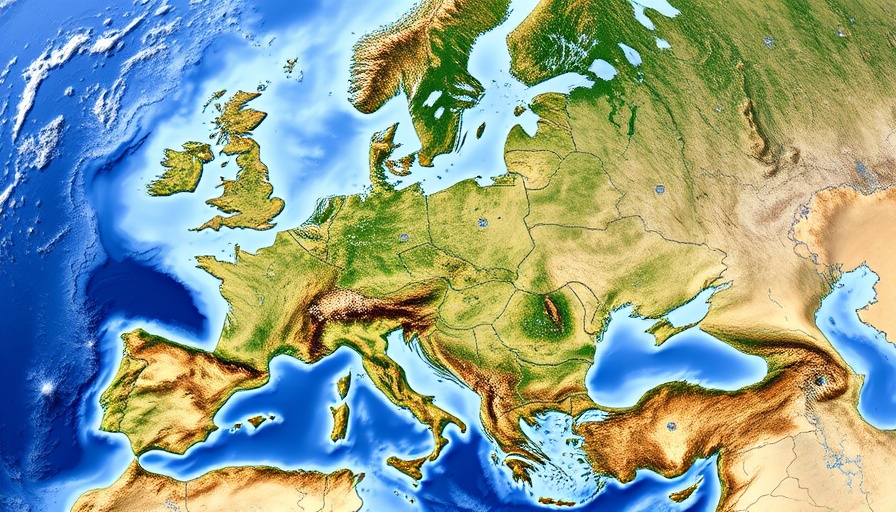
How War Transformed Moldova’s Energy Landscape
Moldova, nestled between Ukraine and Romania, has historically relied on Soviet-era energy infrastructure that supports a heavy dependence on Russian gas. However, the onset of conflict, particularly the Russian aggression towards Ukraine, has significantly shifted Moldova's energy dynamics—prompting a necessary transition toward renewable energy.
The Energy Crisis: A Catalyst for Change
For decades, Moldova sourced its energy from the Cuciurgan power station in Transnistria, providing approximately 75% of its electricity. This dependency on a contested region posed substantial risks, as Moldova’s energy security was intricately linked to geopolitical tensions. With the war, the fragile balance was disrupted. The neutrality stance taken by Transnistria amidst Russia’s military actions came at the cost of Moldova's energy security. When Russia chose to leverage its gas supplies as a weapon against neighboring countries, Moldova was left vulnerable and cold during the harsh winter of January 2025, marking the beginning of a pivotal transition.
In response, Moldova's pro-European government, led by President Maia Sandu, made a decisive pivot towards diversifying its energy sources. This shift away from Russian fossil fuels didn’t merely solve an immediate crisis; it paved the way for sustainable energy development in collaboration with the European Union.
The Shift to Renewable Energy
Moldova’s rapid expansion into renewable energy has been nothing short of remarkable. By increasing its domestic renewable energy production—rising to 36%—the country is not only finding new sources of electricity but stimulating economic growth as well. Investments in solar and wind power have been crucial in this journey. With a newly liberalized energy market, Moldova can foster modern institutions and attract international investments, thus capitalizing on the urgency created by the crisis.
International Support and Energy Efficiency Initiatives
The support from international partners has been integral to Moldova's green transformation. Government programs like the 'Casa Verde' initiative make energy efficiency upgrades accessible for Moldovan households. This scheme supports the installation of insulation and modern heating systems, empowering citizens to reduce their long-term energy costs. In a nation where energy was historically cheap, such measures represent a significant step toward building a culture of sustainability.
Long-Term Benefits of Energy Independence
The ongoing energy transition in Moldova, driven by the current crisis, holds an array of long-term benefits. By reducing dependency on expensive energy imports, Moldova can stabilize its economy, a necessity in the poorest country in Europe. This transition contributes to lower carbon emissions, helping Moldova tackle its status as a highly climate-vulnerable nation.
Potential for Renewed Sovereignty
Security in energy supply also translates to geopolitical autonomy, diminishing Russian influence over Moldova. By developing a resilient energy sector independent of Moscow, Moldova stands to restore its national identity and sovereignty, emerging stronger post-crisis.
Looking Ahead: A Future of Clean Energy for Moldova
The Ukraine conflict's catalyst role in sparking Moldova’s renewable energy movement may serve as a transformative chapter in the country's history. As discussed in Time Magazine, the reconstruction and enhancement of Moldova's energy systems could propel the nation forward, potentially making it a European leader in renewable energy innovation.
Conclusion: Why This Matters
For citizens, the urgency of the energy transition isn't merely an environmental issue; it's personal. As energy prices soar and dependence on an unpredictable source diminishes, resilience is born from necessity. Moldova's shift towards renewable energy not only secures its future but offers a beacon of hope and stability in a tumultuous region. Understanding this vital transition reinforces the importance of energy independence, showing us that even amidst strife, opportunity for growth and innovation flourishes.
 Add Row
Add Row  Add
Add 




Write A Comment